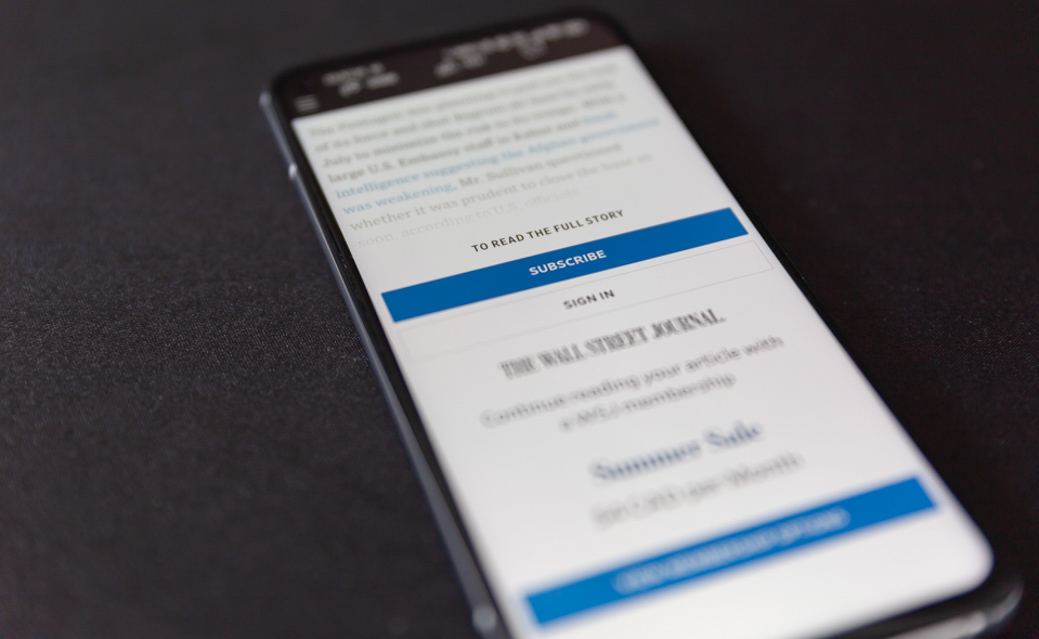Editorial: To pay or not to pay
How paywalls are contributing to fake news and creating barriers to access to important information.
“Just read a fascinating New York Times piece that claimed I’ve reached my free article limit for the month,” tweeted American television host Conan O’Brien on August 14, 2021.
This comment, intended as comedy, is actually riddled with ethical concerns regarding the use of paywalls. A paywall is placed on a publication’s articles, obstructing the rest of the article and forcing the reader to pay for full access. Or alternatively, leave the site and seek the same information elsewhere, a process which often involves less-reputable sources like Facebook, Twitter, blogs, or other media platforms that lack fact-checking and journalistic ethics.
Paywalls create systemic barriers which discriminate against people who lack stable finances and aren’t given access to trustworthy news. News networks acknowledge the importance of certain information, such as Covid-19 related news, and exempt it from the paywall. But this also raises a question regarding which information should be deemed essential. Isn’t a trustworthy opinion regarding politics, finances, culture, health, or society just as important and life-changing?
The Medium is funded through student levies. This means that a small portion of student fees—$5.63, to be exact—goes to our student paper. We use the money for staff salaries, printing newspapers, office maintenance and supplies, and resources for employee development. Thanks to the levies, we don’t need to rely on advertising for funds (like you’ll find in our former years). More importantly, it means there is equal accessibility to all information, no matter the topic or an individual’s financial circumstance. Sure, only UTM students pay for our publication, but anyone can read our work. Maybe that is unfair, because not all students read our work yet have to pay, but at least those who pay are contributing to amplifying student voices and making information accessible to all.
Either a majority of the population should donate spare change, or institutions should fund print media outlets and create equal accessibility to reputable news. All news publications should commit to reporting the truth for everyone, without relying on advertising or paywalls. And most importantly, this information should be accessible to all, regardless of their financial status or accessibility needs.

